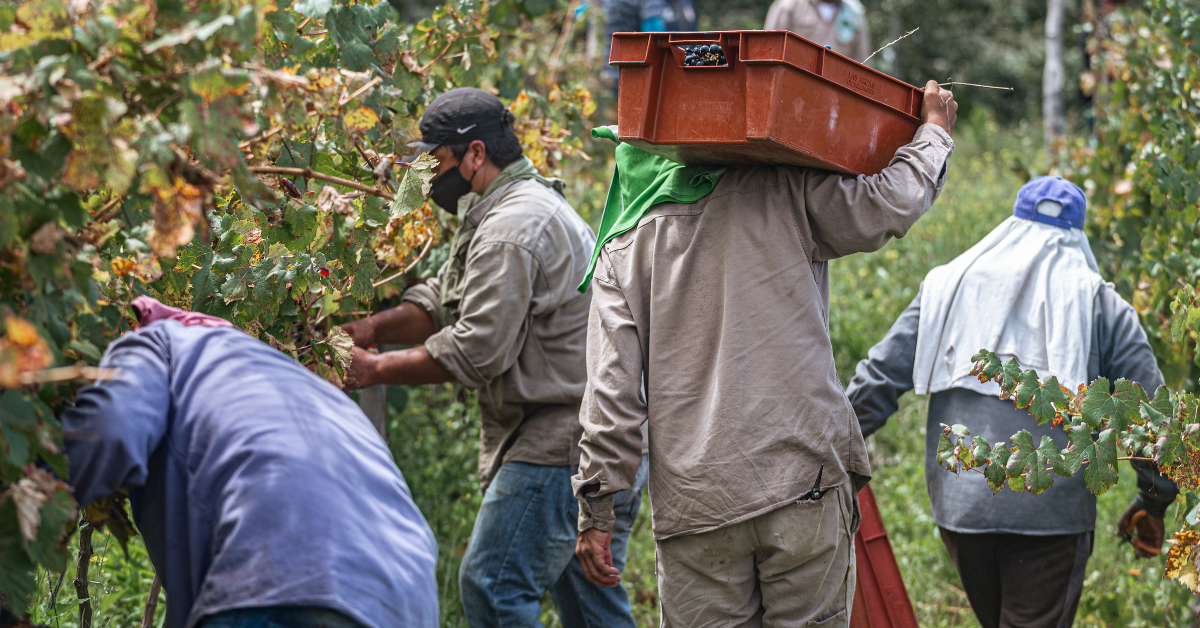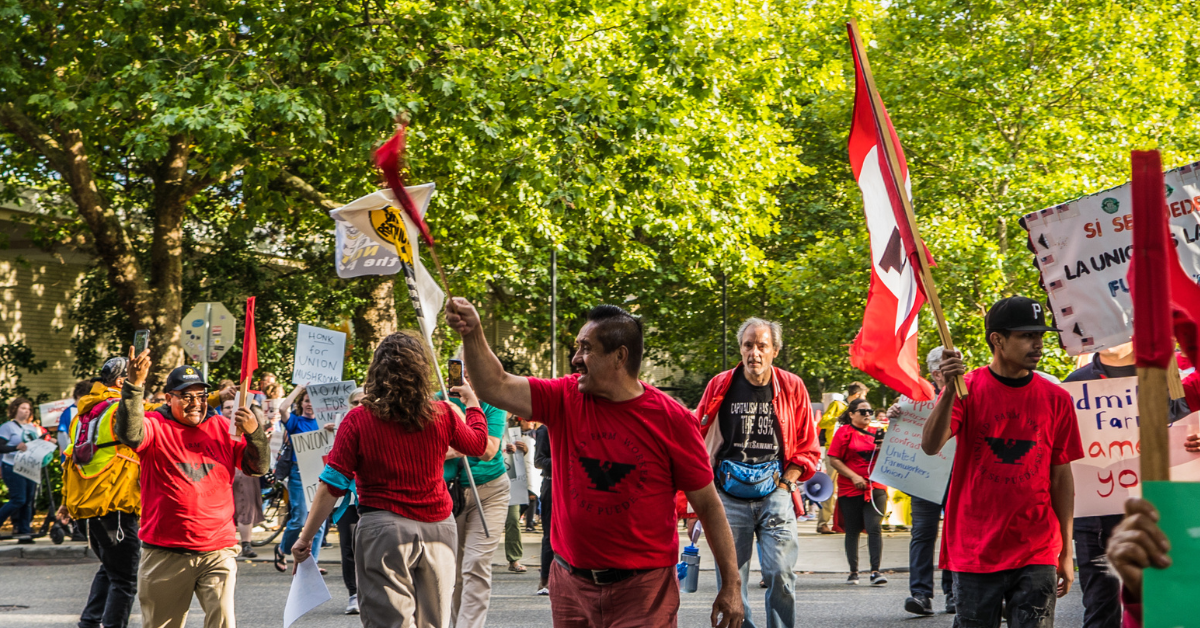NATIONAL
Trump admin cuts farm worker wages
A new rule from the U.S. Department of Labor will transfer billions from farm workers to their employers
WASHINGTON, D.C. (October 9, 2025) — The U.S. Department of Labor (DOL) imposed new regulations last week that will lower pay for many farm workers across the U.S., including here in Washington. The rule, concerning the Adverse Effect Wage Rate for agricultural workers on H2A visas, was announced and implemented October 2, with no opportunity for farm workers and advocates to provide public comment before it went into effect.
The H2A visa program grants temporary work status to workers coming to the U.S. for agriculture jobs. The Adverse Effect Wage Rate (AEWR) sets a minimum wage for H2A workers, an attempt to prevent a race to the bottom in wages and protect the pay of domestic workers in the same jobs. Employers hiring H2A workers have also historically been required to provide and cover housing costs for these workers; these new regulations change that, instead putting the cost of housing on the workers. The U.S. DOL estimates these changes will transfer $2.46 billion annually from workers’ pockets to the hands of their employers, a loss of $17.29 billion over the next decade.
Unions representing farm workers in Washington, Familias Unidas por la Justicia and the United Farm Workers (UFW), both oppose these changes for the disastrous impact they will have on the livelihoods of both domestic and H2A workers.

“When guest worker wages are lowered, it is American jobs that are lost,” said UFW President Teresa Romero in a statement. “With the H2A visa having no cap, and with H2A visa fraud already leading to H2A workers taking up jobs in construction and other industries, the Trump wage cuts opens the gates to potentially unlimited American job losses.”
The U.S. DOL justifies these changes by citing a domestic labor shortage that has driven up the use of H2A workers, resulting in high costs for farm owners. Much has been made of this supposed labor shortage in local media, with Pacific Northwest farmer associations claiming workers are scarce. But the United Farm Workers dispute that claim, sharing reports from domestic farm workers that they have been denied work in local crops, having to travel out of state instead.
There’s a growing movement to organize farm workers in Washington state, with high-profile recognition fights like the multi-year effort by mushroom workers to organize Windmill Farms. It’s more common for domestic farm workers to organize; H2A work is precarious, with a workers’ presence in the U.S. conditional on their employer. For an industry used to paying low wages and now facing more pressure from domestic workers to improve working conditions, heavy use of the H2A visa program may have more to do with retaining a more exploitable work force and increasing profits, rather than solving a labor shortage.
“Farm workers should be paid more, not less,” said Erica Lomeli Corcoran, the UFW Foundation’s Chief Executive Officer, in a statement. “This regulation is a win for corporate greed; a money grab for big agribusiness that transfers millions of dollars through wage cuts and housing deductions from workers to employers. The farm workers who feed us every day deserve so much more and we remain committed to ensuring that their labor and dignity is respected.”

Mushroom workers and supporters rallied in Seattle in 2023.
In Washington, H2A workers will face a wage cut of $3.29 an hour, before a housing deduction of $2.49. That puts the AEWR in the state below Washington’s minimum wage of $16.66 an hour. It’s important to note that the AEWR isn’t the only regulation that sets wages for H2A workers; it doesn’t override the federal or state minimum wage, or the wage set through a collective bargaining agreement. Still, lowering the AEWR will result in a pay cut for H2A workers and puts significant downward pressure on domestic workers’ wages as well.
Ultimately, this new rule is one more hit on working people already struggling to make ends meet in an economy rocked by uncertainty around tariffs and other Trump economic policies, all while massive agribusinesses are getting billions in subsidies from taxpayers. But farm workers and their unions are committed to fighting back, with the labor movement backing them up.
“No one eats without farm workers,” said April Sims, President of the Washington State Labor Council. “Already underpaid for the invaluable work they do putting food on our tables, this Trump wage cut targeting farm workers is yet another anti-worker policy from an administration that would rather help corporations pad their profits than support working families. Washington’s labor movement stands united with UFW and our farmworker siblings across the U.S.”





